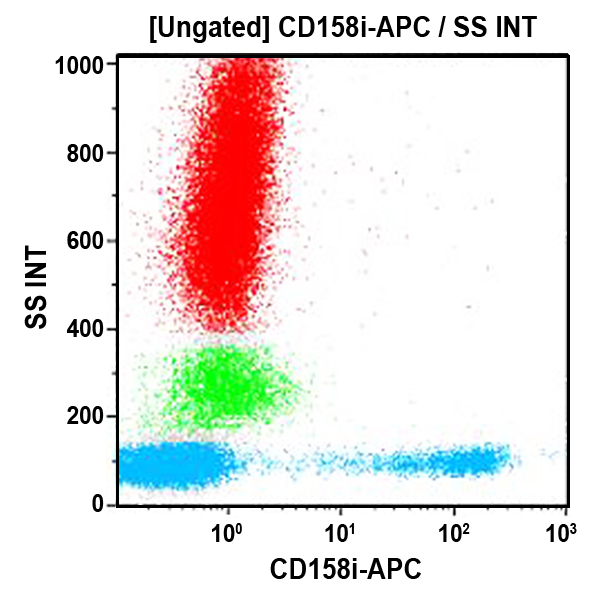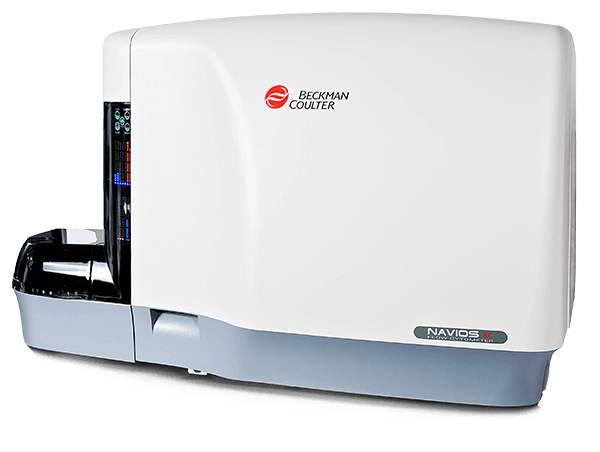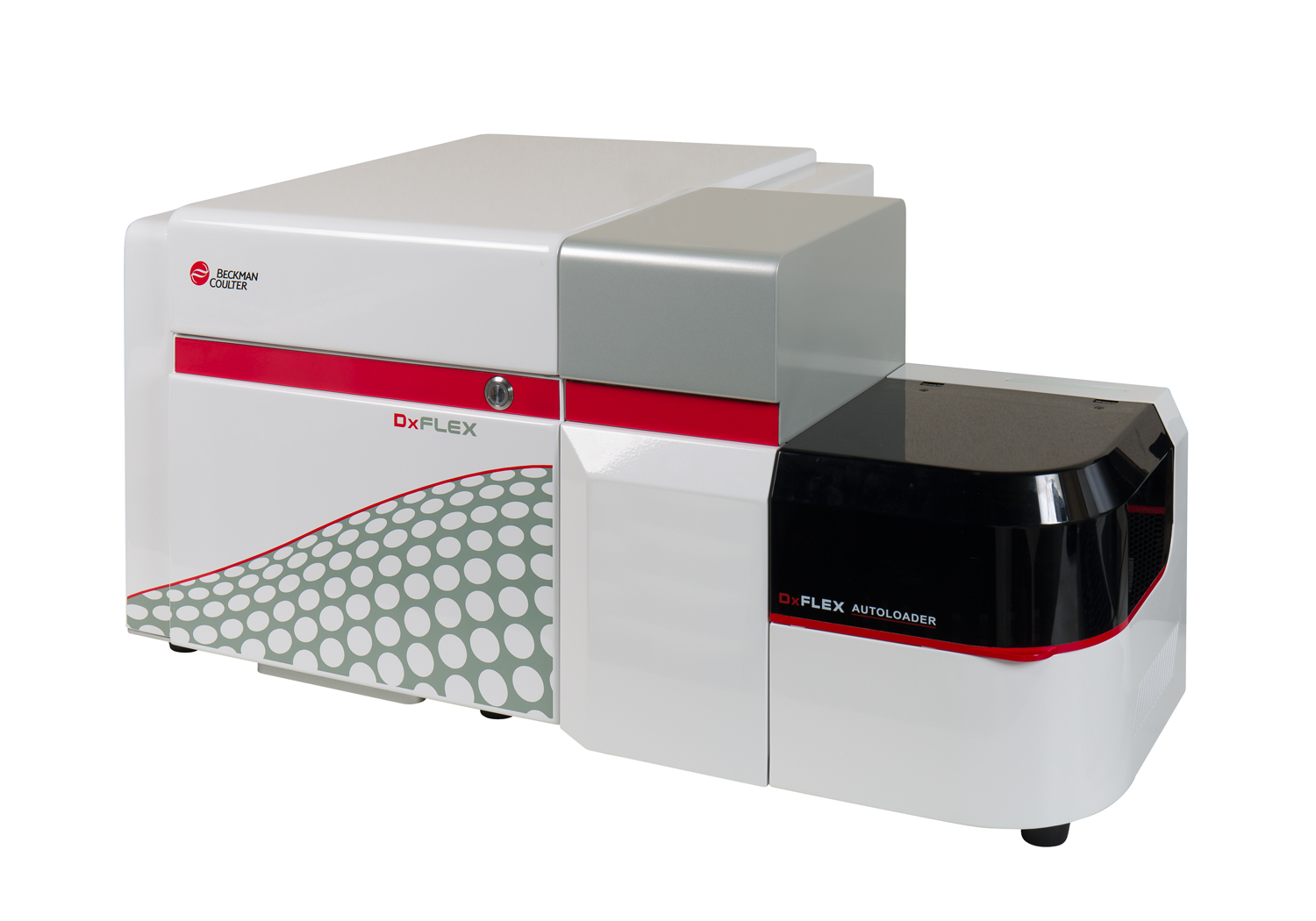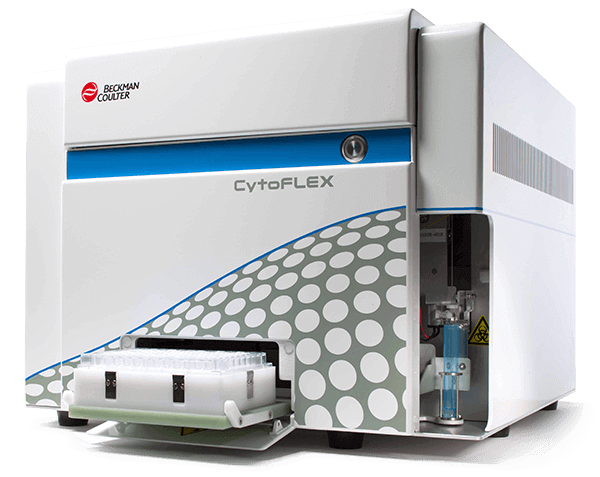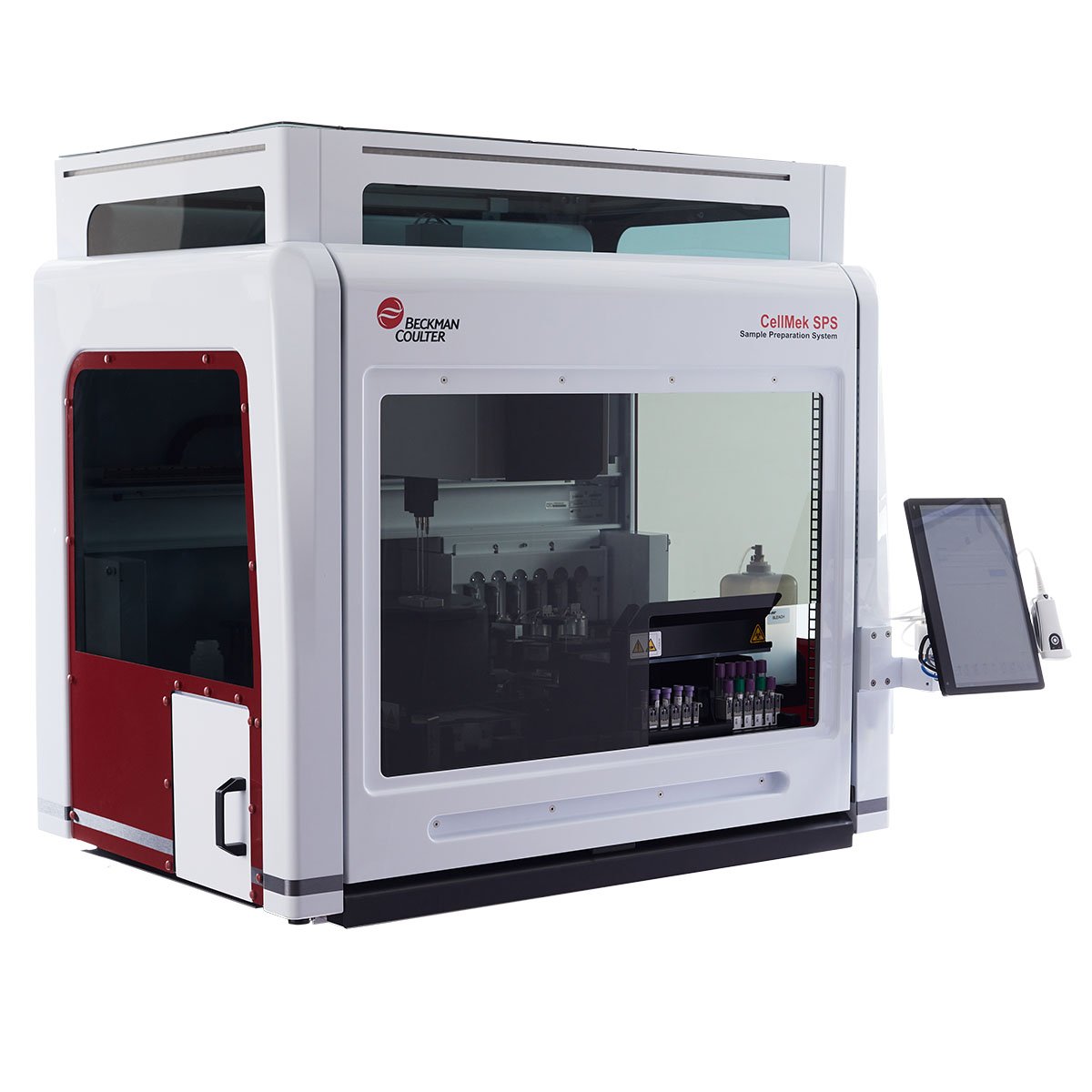CD158i Antibodies
The CD158i molecule (also known as p50.3) is a monomeric integral membrane glycoprotein of 50 kDa. This protein belongs to the family of NK receptors for MHC class I molecules. There is another comprehensive nomenclature which refers to this molecule as KIR2DS4; this acronym stands for Killer cell Immunoglobulin (Ig)-like Receptor (KIR), with extracellular part containing 2 Ig domains (2D), and a short (S) cytoplasmic tail. CD158i comprises 2 C-type extracellular Ig domains. The intracytoplasmic portion lacks characteristic ITIM motifs (Immunoreceptor Tyrosine-based Inhibition Motif) and displays a charged residue in the trans-membrane portion. CD158i receptor seems involved in NK cell activation, following HLA-Cw3 supertype recognition. Antibody-induced cross-linking of CD158i (p50.3) results in both early activation events and late effector function.
| Clone: FES172 | Isotype: IgG2a Mouse |
| The FES172 antibody stains NK subsets, but the p50.3 antigen appears to be expressed only by some individuals, and to be co-expressed with p58 KIRs. | |

